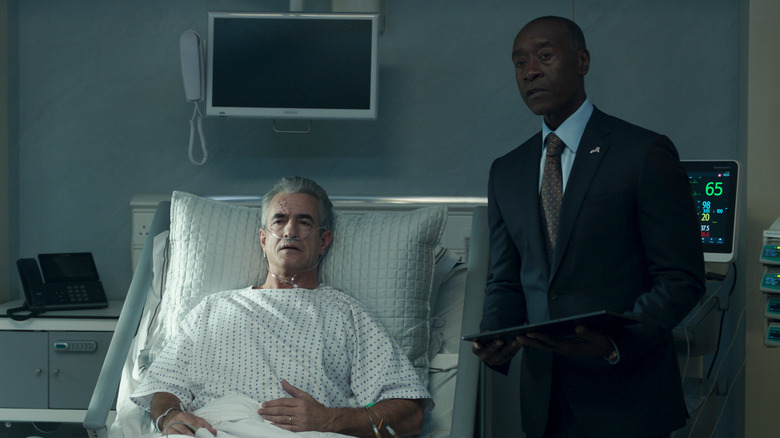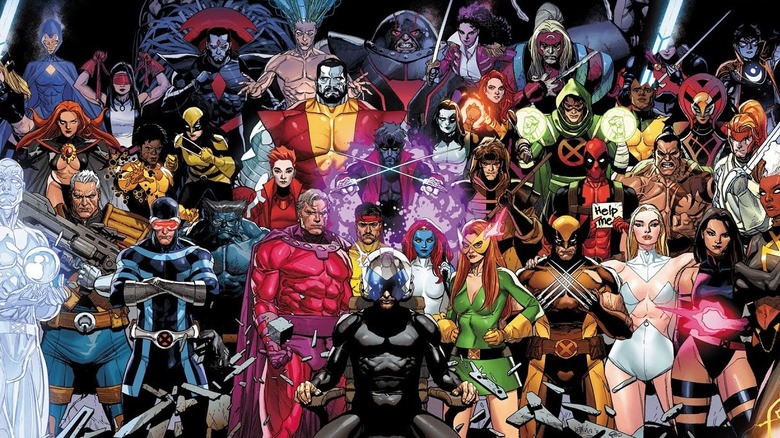How Secret Invasion Sets Up The X-Men's MCU Debut (And Their Biggest Struggle)
Contains spoilers for "Secret Invasion," Episode 6 – "Home"
As the wait for the X-Men's Marvel Cinematic Universe debut grows increasingly restless, "Secret Invasion" may have just set the groundwork for the mutants and their biggest struggle.
In the finale's closing moments, President Ritson (Dermot Mulroney) passes a bill declaring all alien species hostile, swearing to hunt down every last Skrull on Earth. His speech incites violence among the people, leading them to take matters into their own hands. Although Ritson likely won't be in office long, as President Thunderbolt Ross is coming in "Captain America 4," his words instill hate and fear, priming mutant kind as the next victims of the worldwide sentiment.
The humans of the MCU are accustomed to heroes that look like them, with other "weird" looking ones, like Hulk, causing numerous headaches over the years. However, Ritson's speech shows that even those who look like humans aren't to be trusted, which doesn't bode well for Homo Superior. Mutantkind is full of various individuals, some looking like humans while others bear little-to-no resemblance, meaning no one will be safe if Ritson's wave of fear and hatred continues. It wouldn't be that big of a leap for the anti-Skrull movement to shift gears and become anti-mutant, setting the foundation for a struggle that is a core issue mutant kind has faced since the beginning.
Prejudice is nothing new to mutants
Although the X-Men have become one of Marvel's most successful franchises, they have a rather dark history within the Marvel Universe, with prejudice and discrimination often a more significant threat to mutants than the villains they face.
Since the beginning, humans have always looked down on mutants, seeing them as a threat to humanity and hating them for simply being different. In many ways, the relationship between humans and mutants mimics real-world race relations, with plenty of X-Men stories featuring social commentary on many political issues. Mutants' shaky relationship with humans shapes many of the X-Men's iconic characters. Villains like Magneto want to treat humanity as harshly as they treat mutants. Professor X — sometimes naively — wants humans and mutants to put their past behind them, moving forward peacefully.
The social commentary in many "X-Men" stories is one of the reasons for the comics' everlasting success, and Marvel Studios will need to showcase that with the mutants in the MCU. With its ending, "Secret Invasion" more or less teased what that could look like, with just a glimpse of what humans are capable of when instilled with fear and hatred toward another race. The ending mainly focuses on paranoia, as humans can't be sure who is a Skrull and who isn't, but mutants won't be able to hide as easily. "Secret Invasion" lays the groundwork, but Marvel has the chance to deliver a more meaningful story centered on hatred and fear with the mutants.

